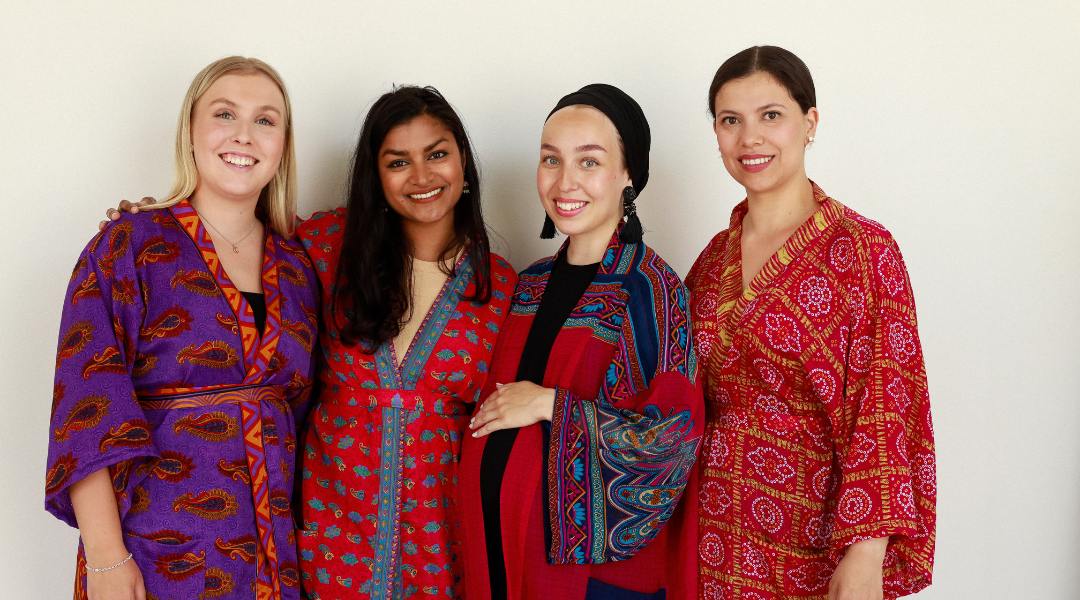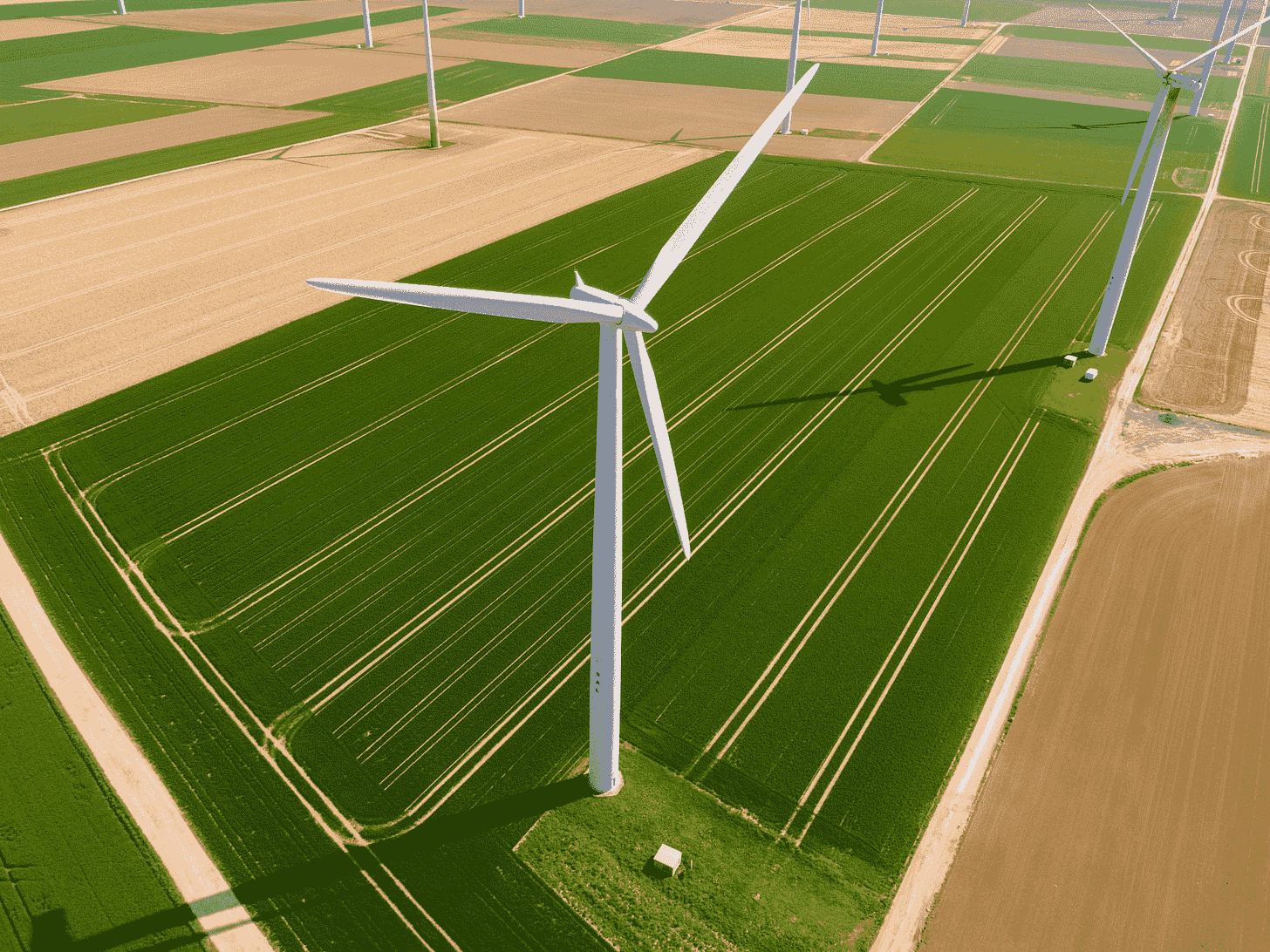Pukhraj brings India's craft and colors to Finland through ethical fashion

When Pukhraj came to Finland for further study, she found the opportunity to bring the colors & craft history of India to the global community through ethical fashion & sustainable lifestyle.
Pukhraj Ranjan is an Indian educator-turned-entrepreneur with over a decade's worth of experience in the development sector. She established Moi Namaste, a social enterprise to create fair & dignified livelihood opportunities for Indian artisans, especially women. Co-creation, community empowerment and care are at the centre of her work.
Based out of Helsinki, she aims to facilitate ethical trade partnerships between India & the world through her brand and curated marketplace, while working with designers, thought-leaders & other like-minded brands.
She is a cheerleader for women-owned companies, admires global indigenous communities and is committed to fighting for dignity & living wages for artisans worldwide.
How did your journey to Sustainability start?
I think my journey to sustainability has been rooted in practices from home in India. My mum turns my father's shirt into laundry bags, and old saris and socks into dusters.
She has always been from the beginning very crafty— making different things from broken and fallen apart stuff. This is something I have seen while growing up.
When I came to Finland in 2015, I learned about sustainability through the eyes of western countries. I am sure the practices we use at home in India were used in western countries a few generations ago but societal pressure and capitalism have diversified the practices slightly. After all, it's all about how you look and how you are perceived by others.
There are options now. If people want dusters, they buy a new duster instead of reusing old shirts for the purpose. My work since I am in Finland has been extended to thinking about the circular economy, mostly because of the nature of the work I do. I talk about how we recycle, and how we make sure to keep the fabrics that are already in the value chain are kept in use for as long as we can. That has been an exciting journey.
I think the sustainability conversation still lacks in India but people are sustainable without knowing they are sustainable. It's the same with my case, I was doing sustainable practices but I learned about it theoretically after coming to Europe.
Q. Tell me about your company, what does it do?
I run a fashion brand called Moi Namaste. I want to build a community of people who are interested in ethics, culture and sustainability within the fashion industry.
Being an Indian expat living in Finland, I felt that I couldn’t find well-crafted Indian craftsmanship here. We find lots of not-well-done shaggy, cheap things from India but for me, Indian crafts have always been sustainable, with a low carbon footprint and provide economic welfare because they are employing thousands and thousands of artisans.
So, I wanted to bring that to Finland through upcycling. So, my brand uses vintage saris, bed covers, quilts and other deadstock fabrics that already exist in the environment to make clothing. The clothes are made in partnership with women's organizations and NGOs across India.

Q. What are your products?
Kimonos: The intricate silk saris are turned into kimonos for parties and festivals.
Jackets: Bed covers and quilts are turned into jackets because they are thicker. They are not thick enough jackets for a cold country like Finland, especially during peak winter, but mainland Europe can wear them throughout the year. In Finland, it suits better in Autumn, Spring and Summer. In winter, you can wear it indoors.
Summer Dresses: A lot of vintage saris products are quite light because of the nature of saris. So, we make summer dresses, clothes, and kimonos.
Jewellery: Selection of handcrafted jewellery from across India.
Gifts and Bags: With whatever fabrics are left, we make small gift products, such as notebook covers, tote bags, hairbands, and scarves so that there is no waste left.
“There is no sustainable without ethical”- Pukhraj Ranjan, Founder of Moi Namaste
Q. How is your company helping us achieve net-zero goals?
I look at my work through SDG a lot. We are upcycling vintage fabrics that were already out in the environment but I don’t necessarily calculate carbon footprints with the assumption that it is negligible.
Of course, we are bringing our products from India to Finland, so there is a carbon footprint there but we are still a small company, which gives us no option but use the ship, which would have been ideal for the lower carbon footprint.
For every order we get, we plant a tree. So, we are trying our best to offset somehow, but I accept, more has to be done. Honestly, I am not sure if planting trees and upcycling old fabrics are offsetting the carbon footprint of our delivery route. However, we do everything we can that we have control to support net zero goals.
I feel like we are still so small that the net zero goal has to be a bigger goal for larger businesses. For a small company like Moi Namaste, which brings 50 pieces a year, a carbon footprint is kind of negligible compared to giant companies. It is also a very interesting conversation, but as we grow in the next 5-10 years, things will be different. We will have more power, I hope.
Q. Can you talk a bit about the ethical side of your business?
We look at sustainability both through people and planet perspectives. We always say we are people and the planet positive and profit comes after. We want to ensure we employ people who make a product in a fair and dignified manner but also use practices that have a negligible negative impact on the environment.
So far that has been upcycling but in future, we will be working with traditional craft people, who print and make fabrics with a very low carbon impact. For example, handling weavers make fabrics completely by hand so there isn't a carbon footprint like large mills.
We will work with block printers, which print fabrics with hands. We want to support those communities as well. We want to employ underprivileged women and traditional craftsmen. For us, environmental sustainability, people sustainability or employment sustainability can’t be separated. They are interlinked.
If people from the villages are not getting employment, they will move to the cities, and as you know, cities are already overburdened by people and pollution. Negative environmental impact comes with it.
Also, the conversation around climate change has been that the first people to get the impact of climate change would be women, indigenous people or traditional artisans who live in rural areas. So, you can’t forget these people when talking about sustainability. We are making sure to take care of people and the planet.
Q. What are your current challenges?
I am so driven by value and trying to do things right that I am struggling to grow my business. Sustainable fabrics and labour costs are high, which I don’t want to compromise. Given that we are a bootstrapped company which means I have given my honeymoon money to the company, it’s difficult to know how to grow without compromising my values.
If you ever talk to investors or mentors, they say you don’t have to check all the boxes but it's hard for me to avoid some boxes. This is why I am going quite slow so that maybe in the next five years, we have a clear plan to tick all the boxes without having financial loss.
For Finland, my clothes have been too colourful and too ethnic. The world has become so mean that everybody is scared of being caught out in cultural appropriation. Even if I upcycled saris into western dresses, now and then, people ask can I wear this?
This is why I was saying sustainability and people go hand in hand. There is so much education that needs to be done about how you can embrace another culture and have an impact internationally.
In Europe, there is such a big conversation around having an impact only in Europe, buying things that are made in Europe because it's better to make things in Portugal and Italy than in India. Honestly, that’s not always true, but people are trying to make their life easier. What that is doing sometimes is, it's taking away from the good work people are doing outside Europe. There is still a lot of education I need to do and that's taking a lot of time, which I would have invested in growing the company.
“For us, environment sustainability, people sustainability or employment sustainability can’t be separated”- Pukhraj Ranjan, Founder of Moi Namaste
Q. What have you learned from your business, and what tips do you have for people starting a company?
The first thing to do is, write down the values that are guiding you to start a business. Because I think vision and mission might change a bit when you do a market analysis and when you see what are the key trends in the world that are influencing your business.
What is important is, you figure out why you are doing this business in the first place— that will help drive it as long as it can, hopefully forever.
For me, giving back to India has been the greatest drive— my big core ‘Why’, so I don’t care if we don’t do fashion tomorrow. We might do artisan training but it's okay because the ‘Why’ for me is to give back to India and use my existence in a privileged society, such as Finland, as best as I can.
Also, be ok with making a longer plan to reach your goals. It will not happen in the first year but don’t be disheartened. It takes time, but keep going back to your ‘Why’— that keeps you motivated.
Q. With the current world’s situation, what do you think is the future of the circular economy?
The optimist in me believes that work towards meeting net zero goals will continue. There is no option left. If you think about war and inflation, they are man-made problems. Furthermore, a lot more global stress has been felt because of the impact left by COVID-19 and more recently Russian invasion.
There are people dedicated to the circular economy cause who will not deviate from it because the world needs it. I do, however, worry about society’s engagement with this topic.
For example, in greenwashing and fast fashion — people don’t have the patience to do research or the time and energy to educate themselves. That means often they are influenced by false marketing and unreal claims.
I hope that the work happening for planetary health will continue, but also more and more people will be educated about how to bring it into their daily lives.
Q. What is Moi Namaste’s plan for the next five years?
In the next five years, I would love to see my company become a one-stop culture-driven platform for sustainable fashion and lifestyle.
The larger picture is to have a global or at least European-wide community that is engaging with sustainable fashion, also from a cultural lens. That means they are embracing who they are, and their action positively impacts not just their immediate community but also the international community through fashion.



